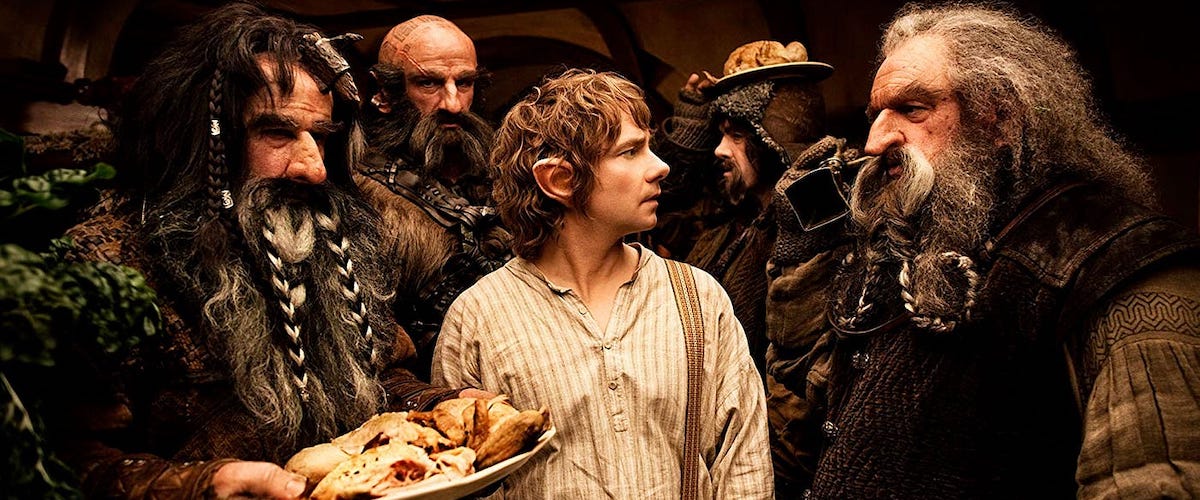10 Screen Adaptations Much, Much Worse Than The Books They’re Based On
So Many to Choose From!
Here at Lit Hub, we’ve been thinking about the movies. (The literary movies, of course.) We’ve spent a possibly unreasonable number of hours in the virtual office debating our choices for the film and tv adaptations we think are better than the books they were based on (and then debating your choices for the same), and now, inevitably, the time has come for us to ponder the reverse: the movies and television shows that just couldn’t measure up to the books they were based on.
Well, that’s a much broader category, you say—and it’s true, but most adaptations are at least fine. On the other hand… here are the ones that keep your friendly Literary Hub staffers up at night. As always, add your own to our list in the comments.
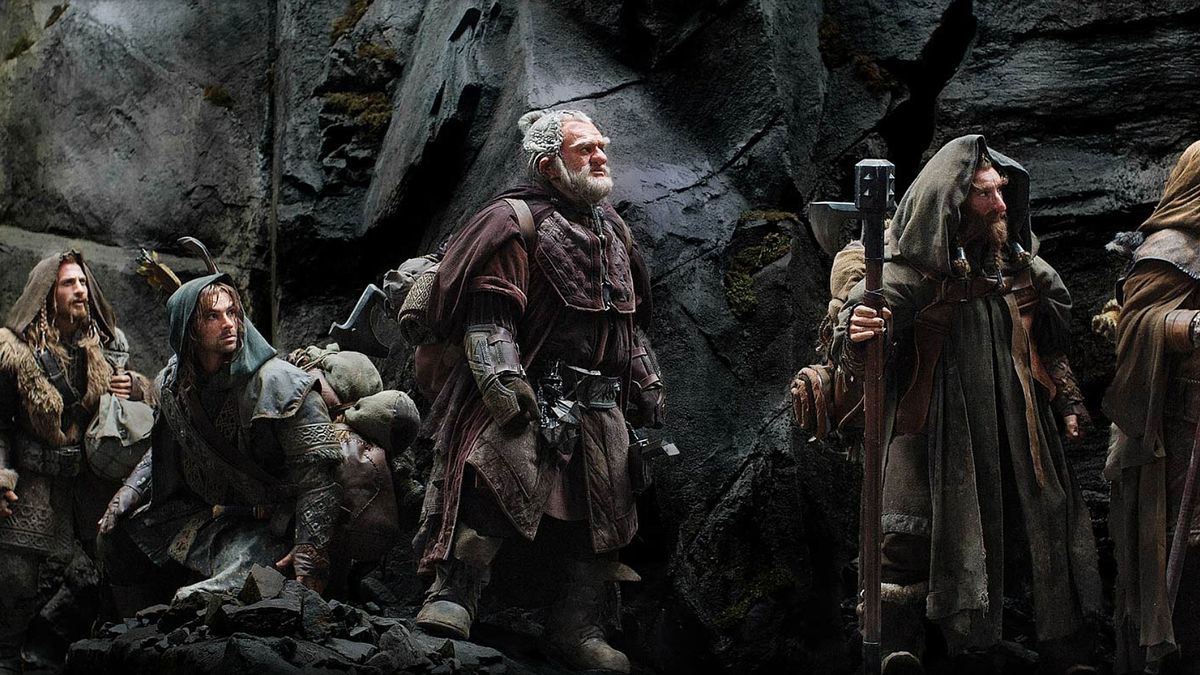
The Hobbit(s) (2012-2014)
based on: The Hobbit by J.R.R. Tolkien (1937)
screenplay by Fran Walsh, Philippa Boyens, Peter Jackson, Guillermo del Toro
J.R.R. Tolkien’s The Hobbit is 310 pages long. Peter Jackson’s three, three, Hobbit films will take you 474 minutes to watch in their (I’m sorry) torturous entirety (532 minutes if you watch the extended edition, which nobody has ever done). It’s been 20+ years since I read The Hobbit, but I recall it being a delightful, bouncy, reasonably propulsive affair. Dwarves wreck some fussy little guy’s house. Fussy little guy almost gets eaten by trolls. Fussy little guy finds a ring and tricks Gollum with a riddle that isn’t really a riddle. Some elves pop up, Gandalf wanders in and out of proceedings, there’s a dragon who really loves gold for some reason. Then the fussy little guy goes home, allowing us all to get on with the more important business of The Lord of the Rings.
Now, if you were to ask me what I remember from the adaptation(s), I would say… the dwarves throwing things around Bilbo’s house at the beginning, the guy who plays Thorin Oakenshield glowering, the return of some of my elf pals from the LOTR films, Benedict Cumberbatch voicing the dragon for some reason and… that’s it. Why did I give up eight hours of my one precious life to sit, fuming, in the dark, willing these movies to hurry up and end? Why did this average-length children’s fantasy novel need to be three films? Why did each film have to be two-and-a-half hours long? Why did I subject myself to bout after bout of plodding, bloated anti-entertainment every Christmas week for three straight years? Why did I not just save my money and reread the book? Great questions, all.
–Dan Sheehan, Book Marks Editor-in-Chief
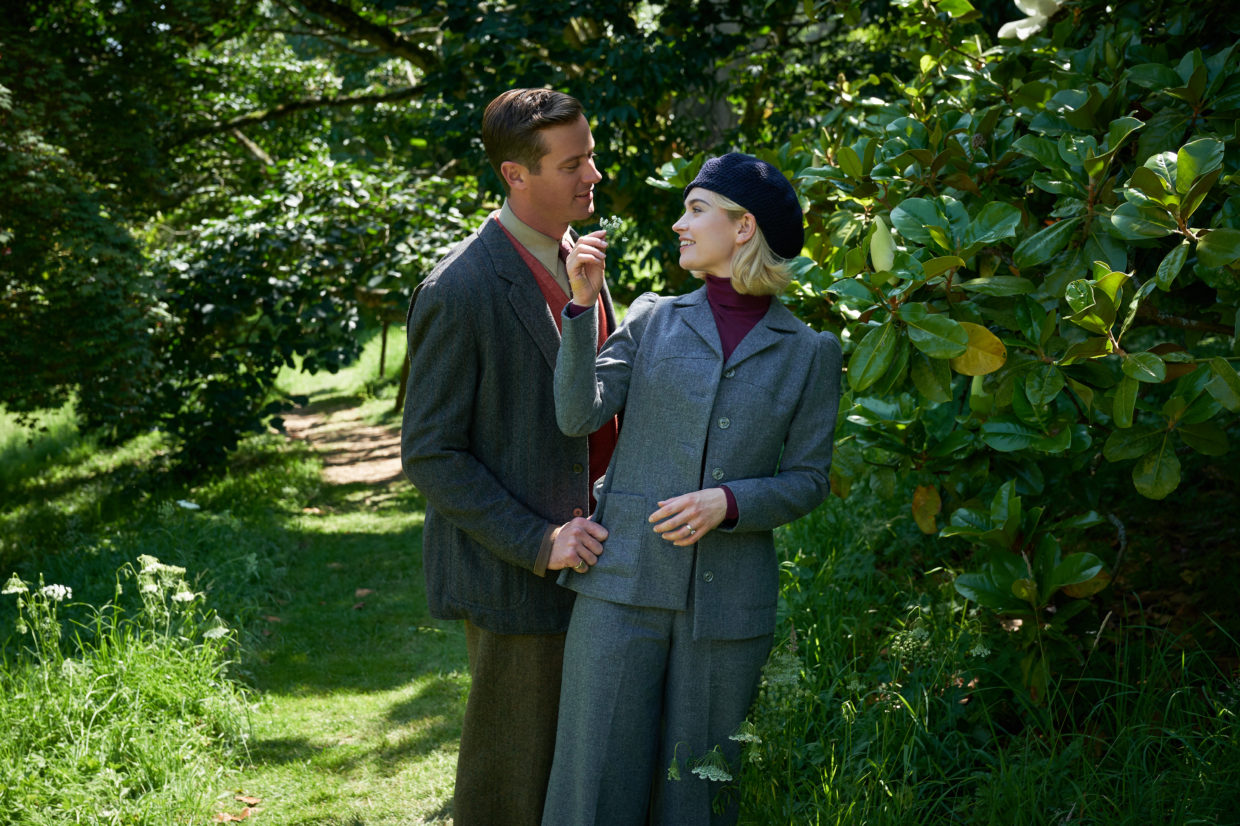
Rebecca (2020)
based on: Rebecca by Daphne du Maurier (1938)
screenplay by Jane Goldman, Joe Shrapnel, and Anna Waterhouse
It’s not always that critics and audiences agree, but they agree on this: Hitchcock’s 1940 film adaptation of Rebecca—starring Laurence Olivier and Joan Fontaine—slaps (at a whopping 98 percent on Rotten Tomatoes), while the 2020 version—starring Armie Hammer and Lily James—splats (its 39 percent Rotten Tomatoes score feels… generous).
It makes sense that Hollywood would want to bring Daphne du Maurier’s tantalizing 1938 gothic novel to a new generation of viewers, but giving it the glossy Netflix treatment is a complete waste of source material (and presumably $$). It’s not dark enough, not strange enough, not sexy enough. (It’s definitely not queer enough.) And that’s just if you can get past the Armie Hammer of it all—mileage may vary on that one. To the casting director, I say: if you’re going to cast Lily James as a doe-eyed ingenue, at least try to make her less hot. (Though she has a high bar to reach, set by the tight-lipped Judith Anderson in Hitchcock’s version, Kristin Scott Thomas does make for a convincing Mrs. Danvers.)
The film never seems to know what it wants to be: a tense domestic thriller? A fizzy romance? A feminist critique on “standing by your man”? A bildungsroman for the second Mrs. de Winter? I’m frankly surprised they didn’t lean into the true crime aspect more. I suppose it’s beautiful to look at, but I’m more excited about director Ben Wheatley’s next project: The Meg 2.
–Eliza Smith, special projects editor
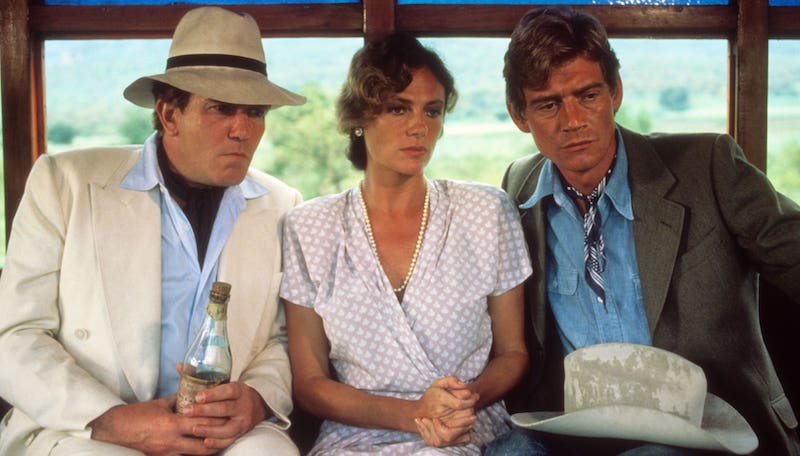
Under the Volcano (1984)
based on: Under the Volcano by Malcolm Lowry (1947)
directed by John Huston; screenplay by Guy Gallo
John Huston’s misguided adaptation of Under the Volcano is doubly frustrating because Huston is also responsible for one of the very best (and most unlikely) literary adaptations of all time: James Joyce’s near-perfect short story, “The Dead.” But where Huston is able to go measure for measure with the uncanny music of Joyce’s emotional ebb and flow, he makes a total mess of Malcolm Lowry’s elliptically structured novel.
Set in Oaxaca on the eve of WWII, Under the Volcano follows the depressed and dissolute British consul Geoffrey Firmin as he drifts through the demimonde steeped in equal parts self-loathing and mezcal; the book is so overgrown and humid with atmosphere and mood one almost feels hungover while reading it. The 1984 movie, however, limited by screen conventions of the day, has none of the grit, and little of the darkness that so distinguishes its source material. And while Albert Finney is brilliantly cast as Firmin, Jacqueline Bisset and Anthony Andrews (the consul’s soon-to-be ex-wife and half brother, respectively) are not much better than hastily airbrushed cutouts. There really is no there there.
(You know who would have done a magnificent job adapting Under the Volcano? Mikhail Kalatozov, whose 1964 epic of Soviet propaganda, Soy Cuba, remains one of the greatest—and wildest—narratives ever put on film.)
–Jonny Diamond, editor in chief
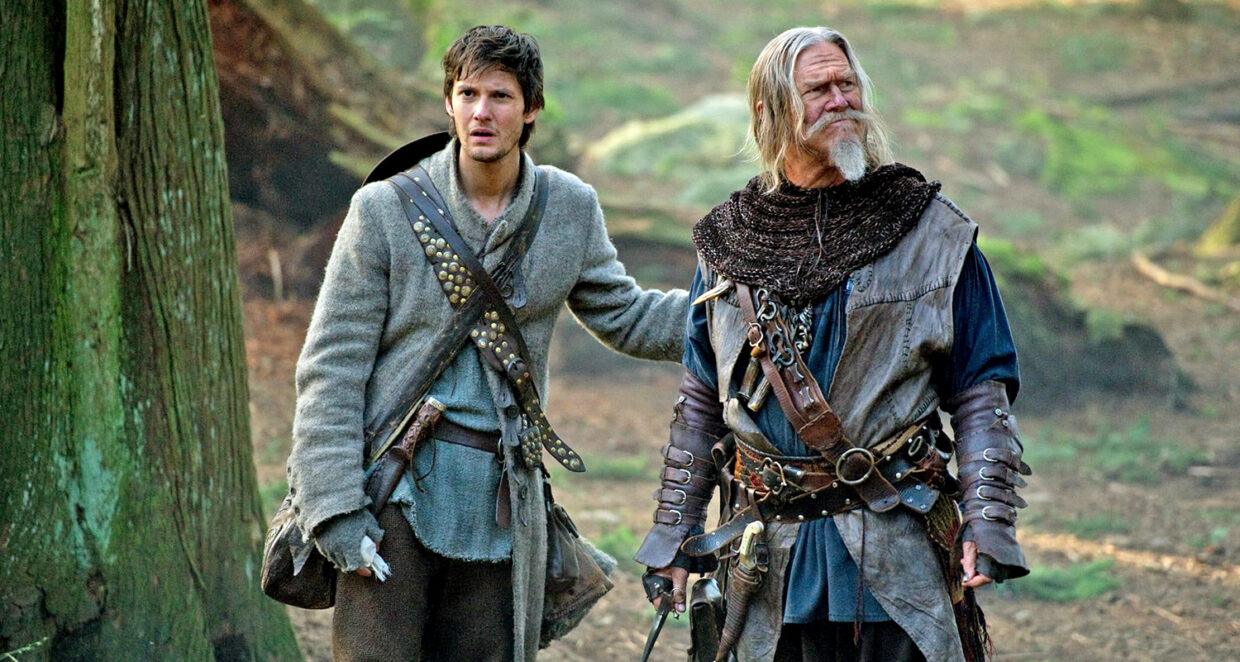
Seventh Son (2014)
based on: The Spook’s Apprentice by Joseph Delaney (2004)
screenplay by Charles Leavitt and Steven Knight
The Big Lebowski reunion project you missed came out in 2014, and has a 12 percent rating on Rotten Tomatoes. Seventh Son, starring Jeff Bridges, Julianne Moore, and Ben Barnes, was based on book one of British author Joseph Delaney’s popular Spook’s Apprentice series, about Tom, a seventh son of a seventh son (rare; lucky), who is apprenticed to John Gregory, the reclusive “Spook” who fights evil spirits in the County.
The fantasy series itself is enjoyable, written in a spare folktale style and neat in its worldbuilding. The film … oh boy! It was set up as an epic coming-of-age, but in practice came off as a bizarro buddy comedy between Bridges’ drunk Gandalf, Benjamin Barnes’ wee apprentice in threadbare henley, and a bunch of terrible CGI demons. Moore’s ludicrous witch flies in and out of the scene at max parody levels in a Photoshop vector performance bad enough that critic Frank Ochiang wrote that she and Bridges “may very well deserve to have their SAG cards revoked.”
It says a lot when stars attend a junket and make it a point not to discuss the film they are promoting. In the mostly empty cinema I sat in for this spectacle, Bridges and Moore joked about their sex scene in Lebowski and Bridges showed that in real life he is, essentially, The Dude (hydrated, in his lane, unbothered about this embarrassing film). Seventh son of the seventh son verdict: worst of the worst. (Unless, like my husband, you were high while watching.) Ah well.
–Janet Manley, Contributing Editor
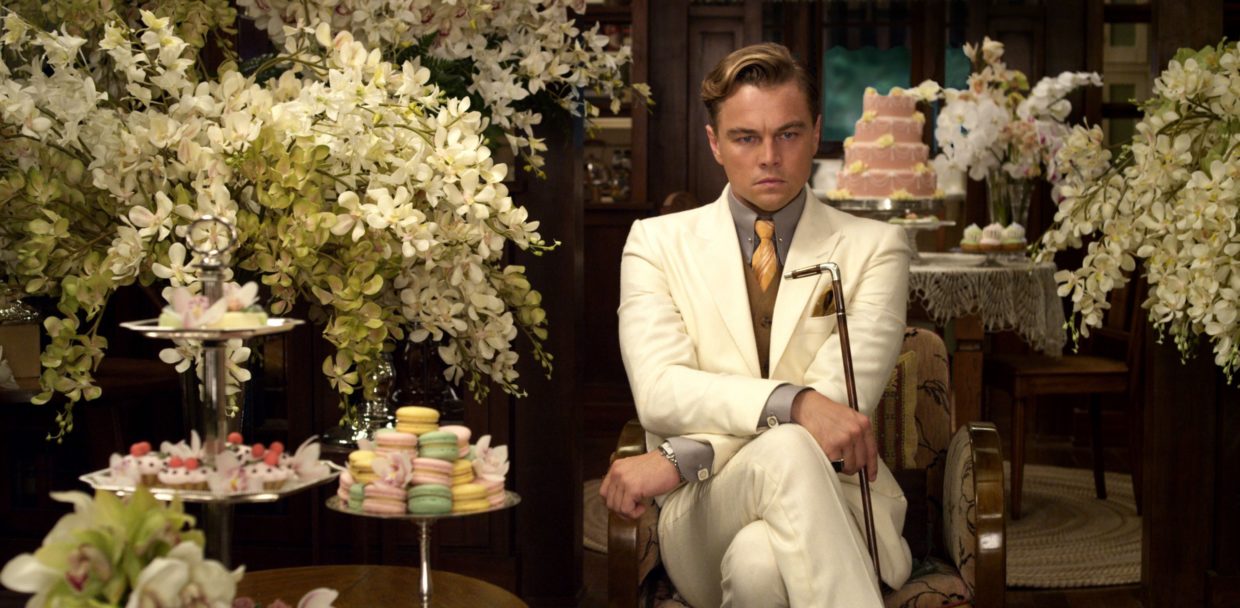
The Great Gatsby (2013)
based on: The Great Gatsby by F. Scott Fitzgerald (1925)
directed by Baz Luhrmann; screenplay by Baz Luhrmann and Craig Pearce
Look, it’s not that it isn’t a good time, but sometimes a gal wants a little more than that, you know? This is a Baz Luhrmann production, which means it’s all spectacle, spectacle, spectacle—a good thing for a movie, and certainly not a problem for an adaptation of The Great Gatsby, except that Fitzgerald’s novel packs a in a lot of substance amongst the splash, and this adaptation hardly remembered to pack any. Too many shirts in the suitcase, perhaps.
But my main complaint, obviously, is the absolutely unnecessary and somewhat condescending frame narrative, which reveals that—gasp!—Nick Carraway has been driven insane by his time spent among the rich, and now languishes at “The Perkins Sanitarium” (wink wink), diagnosed as “morbidly alcoholic,” but not too alcoholic to—gasp!—write a novel about his friend Jay Gatsby, whose proximity, I guess, was brain addling but also super inspiring, guys. (I usually love a meta-narrative, but not this time.) The frame is not that big of a deal in terms of screen time, of course, but it smacks so much of misunderstanding and self-congratulation that it makes me essentially distrust the rest of the film, fireworks and all. And don’t even get me started on the 3-D.
–Emily Temple, Managing Editor
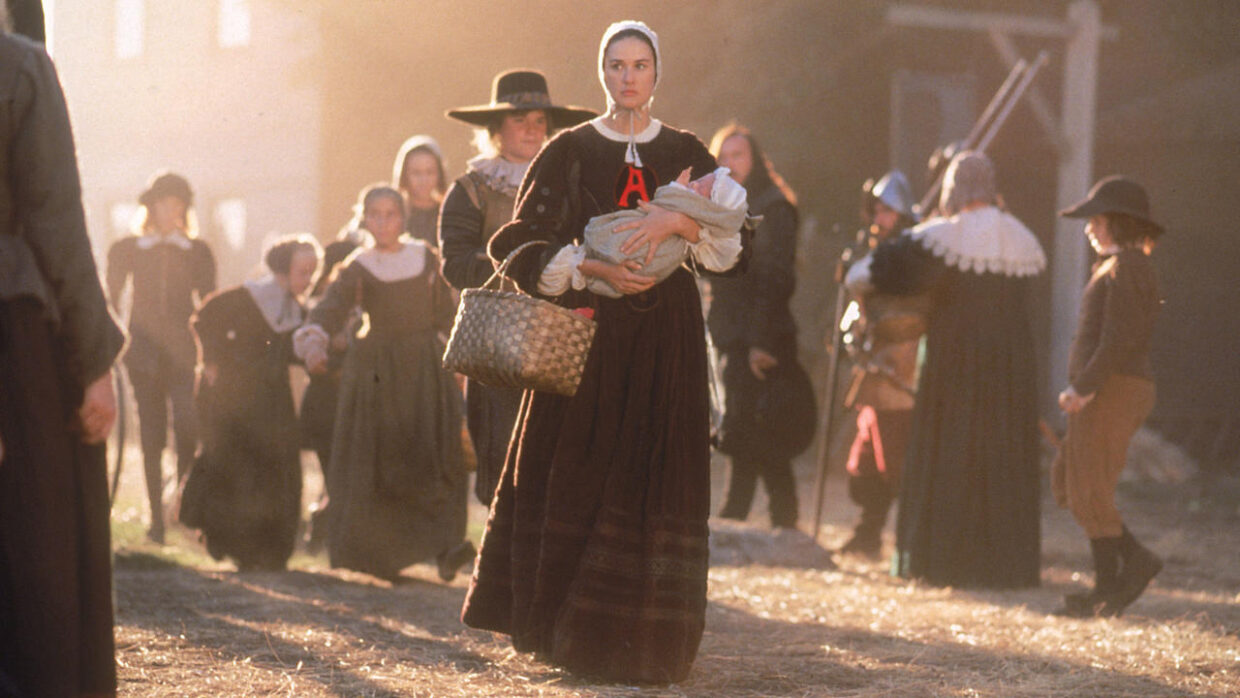
The Scarlet Letter (1995)
based on: The Scarlet Letter by Nathaniel Hawthorne (1850)
screenplay by Douglas Day Stewart
I love Nathaniel Hawthorne’s The Scarlet Letter and consider it to be unfilmable. That being said, 2010’s modern take, Easy A, not only rocked, but it also made the 1995 historical adaptation seem a lot more enjoyable than it is by having characters comment on it constantly. If you watch Easy A, you might even be compelled to watch the 1995 Scarlet Letter to see why so many kids in Thomas Hayden Church’s English class think it’s better than the novel, but I advise you not to. The book is a really complex exploration of religion, freedom, guilt, sin, and society, and the movie is mostly just about Gary Oldman and Demi Moore’s passionate love affair. Which is fine, it’s just… nothing compared to the OG!
–Olivia Rutigliano, CrimeReads Associate Editor

Great Expectations (2023)
based on: Great Expectations by Charles Dickens (1861)
written by Steven Knight
Who gave Mrs. Joe a BDSM whip to spank Pumblechook, and why?
There are so very many questions to ask about the 2023 FX adaptation of Great Expectations (Greatest Letdownspectations?), and the behavior of each wacko character—in a novel otherwise set up to explore the ~universal~ themes of greed, class, and gender—makes it hard to draw a line to a clear takeaway, beyond “Empire bad, but small cottage industry good.” The richer people are, the more batshit their hair, makeup, and clothing. Steven Knight seems to be saying that it’s fine to make horseshoes but as soon as you’re rich off a horse-shoe racket, you’re morally doomed.
In the new adaptation, Pip (Fionn Whitehead) doesn’t just go to London to become a gentleman, but falls face-first there into medieval brothels and cake bowls of opium. With the constant pointed “fuck!”-s, he seems less genteel than Magwitch/Provis (Johnny Harris), the lowly born and bred Convict—so much for the elocution lessons. Miss Havisham (Olivia Colman) doesn’t just decay and rot into nothing, but has a third act comeback that undermines decades of reclusion (idgi????), while the lover who jilted her, Compeyson (Trystan Gravelle), has all the subtlety of Bob from Twin Peaks.
How was Havisham ever “in love” with him? Is there a single rich person who isn’t a complete clown, set against the true-of-heart and Francophile peasants of Gravesend? How is Molly a minor character in all of this? Seriously she gets like half a line in the whole thing. Did they really used to toast toast that way? Why are Wemmick’s glasses like that? Did he remind anyone else of Cat from Red Dwarf? So many questions, so little grungy post-colonial light by which to see them. My final verdict on the show: Wut?
–Janet Manley, Contributing Editor
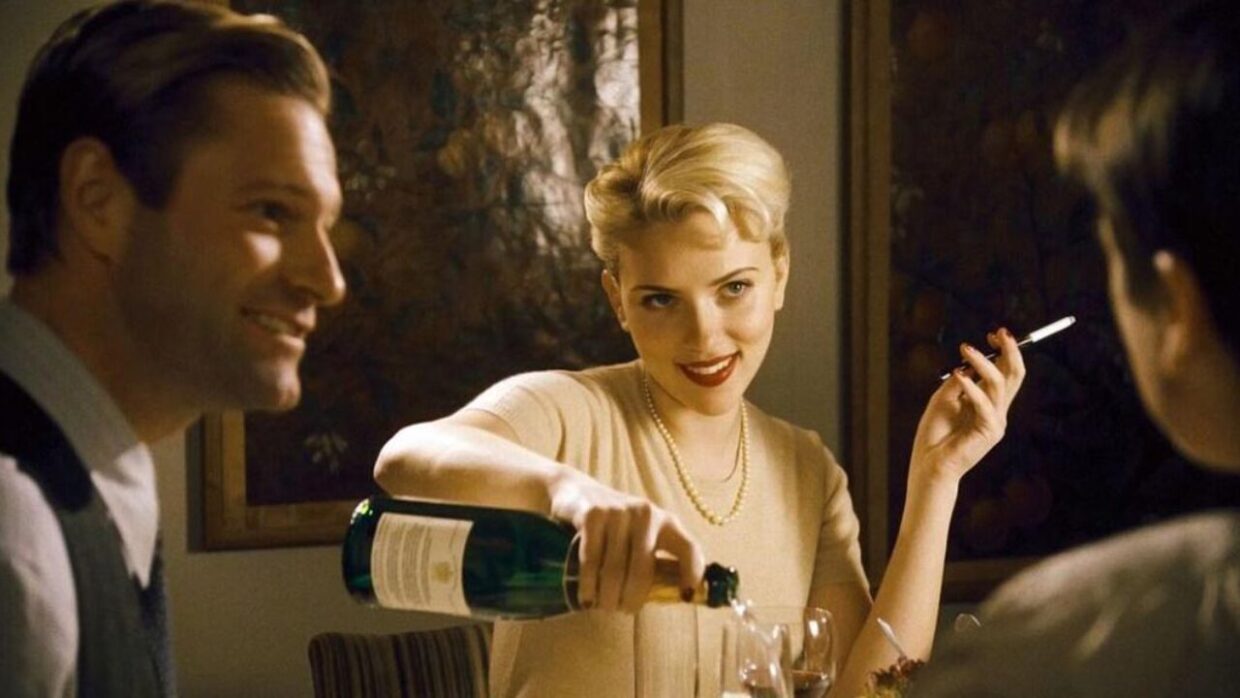
The Black Dahlia (2006)
based on: The Black Dahlia by James Ellroy (1987)
screenplay by Josh Friedman
Probably this Brian De Palma adaptation stands out in memory because it seemed to hold such potential, an intense and interest marriage of slanted worldviews that might have created magic. Or maybe it’s because I can still conjure up the theater where I saw it in midtown Manhattan, where an uncomfortable laughter began rippling through the audience somewhere around the twenty minute mark, or around the twentieth awkward line reading, and pretty soon the place was uproarious, perfect strangers looking at one another in the dark, in disbelief, grinning madly, then looking back to the lit screen, wondering could this be true, could this really be happening, could all this Hollywood talent have been gathered up and put to work in pursuit of this inanity playing out before us?
I suppose Josh Hartnett should have been the first clue. Of all the promising young actors who may have been cast in the James Ellroy magnum opus, Hartnett would have been at or near the bottom of most people’s lists of the plausible candidates, but there he was, brooding away, pursing his lips at odd moments, doing his very best period masquerade and so thoroughly unsuited to the job. And somewhere behind the camera was De Palma, one of the most interesting directors of the century, always making you wonder if he would pull out something brilliant or grotesque or just plain stupid. In retrospect, maybe all the bad decisions that went into this film had reasonably good foundations. Maybe they were trying to do something genuinely off-kilter and disorienting and insightful, to do justice to Ellroy’s dark fantasies. Whatever the motives, the result was an absolute mess of a movie. Unless it was a comedy.
–Dwyer Murphy, CrimeReads Editor-in-Chief
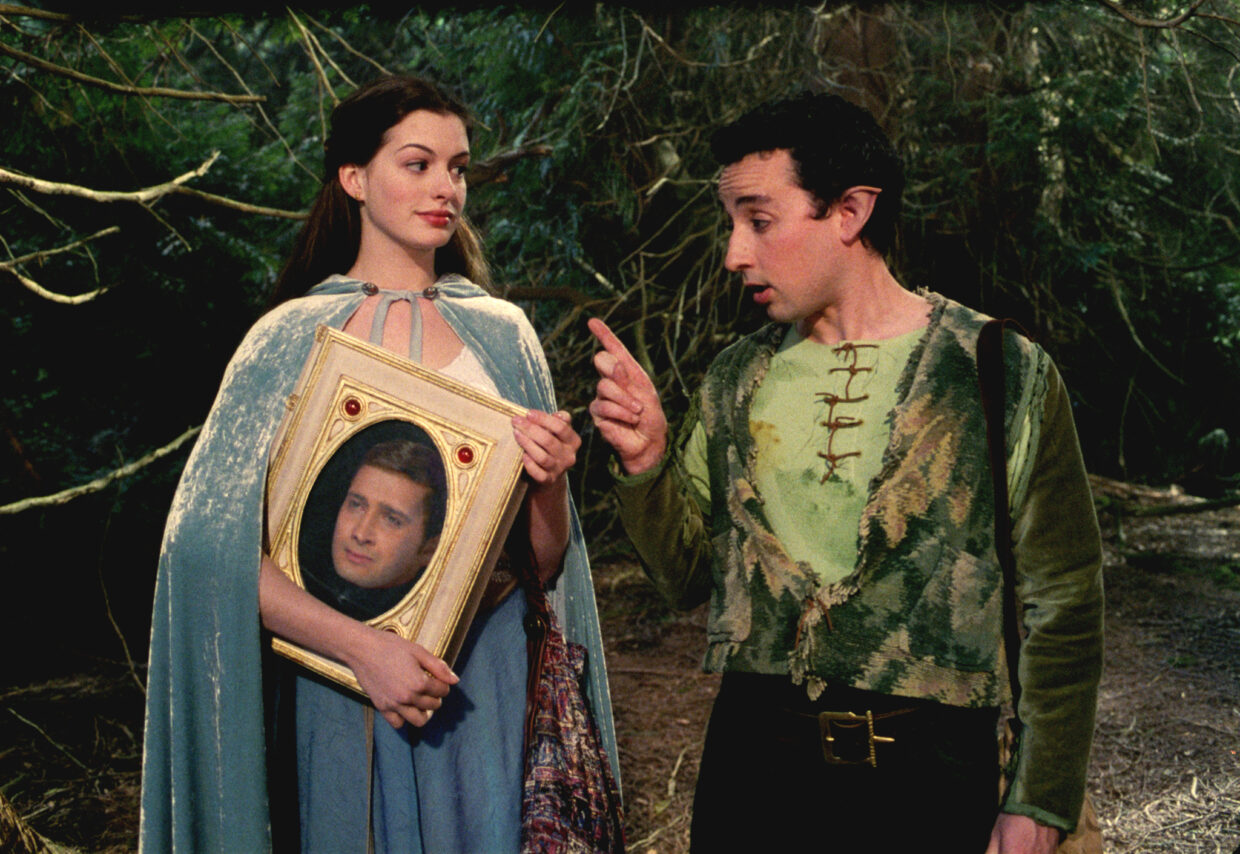
Ella Enchanted (2004)
based on: Ella Enchanted by Gail Carson Levine (1997)
screenplay by Laurie Craig, Karen McCullah Lutz, Kirsten Smith, Jennifer Heath, Michelle J. Wolff
To my mind, it’s a rare literary adaptation that manages to do justice to the source material—while researching for our best of 2022 list last year I watched numerous that just didn’t make the cut, and resigned myself to touting Conversations With Friends, of all things. Unfortunate literary adaptations are so pervasive that I hardly clock it when one isn’t all that great; what else would I expect! Which is why when one stands out, man, it must be pretty bad. Which is why I’m writing about a children’s film from 2004 that continues to be lodged in my brain as an example of someone, or a group of someones, completely and utterly misunderstanding the assignment.
Ella Enchanted the book was a favorite of mine as a child: the story of a girl born with the curse of obedience. When she is told to do something, she must do it: her body acts outside of her own volition. It’s a hard, frightening story of girlhood and agency, how she can be abused because of this curse, how outside of her own control her life and fate is. It’s an extremely special, gorgeous entanglement of various fairy tales, a young love story, and a girl examining her own power in the world. What the movie gave us was something so completely weird and outrageous it should hardly count as an adaptation, which the author herself even said. Even still, there’s something almost thrilling about watching this film, with its obscenely bright colors, dancing trolls, ridiculous step sisters, and clownish antagonists. It’s also, inexplicably, a musical. In all fairness, it may actually be pretty fun in its sheer absurdity, but a good adaptation it is not.
–Julia Hass, Contributing Editor
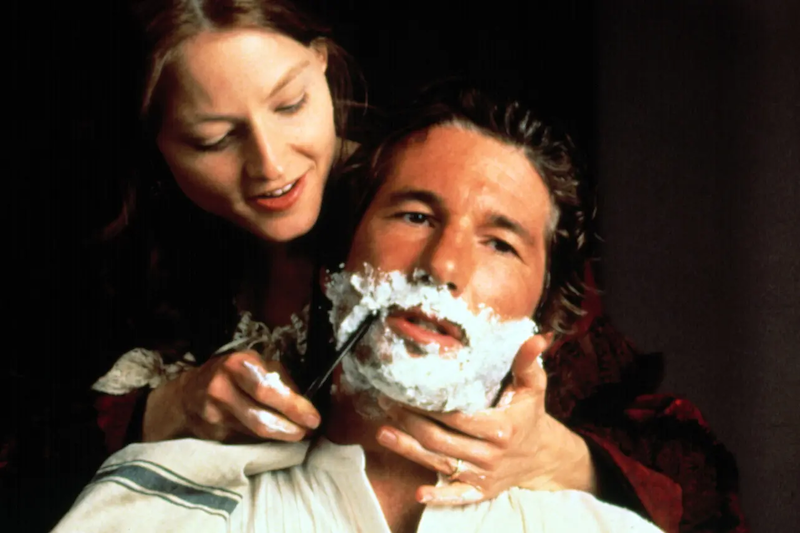
Sommersby (1993)
based on: The Return of Martin Guerre by Natalie Zemon Davis (1982)
screenplay by Nicholas Meyer and Sarah Kernochan
Sommersby is a pile of drivel that proves that Hollywood is unable to make an honest film about the Civil War, and falls prey to the temptations of white saviorism and heavy handed moralizing. Based on the French film The Return of Martin Guerre, which in turn was based on contemporary historical accounts of the trials of Martin Guerre, as well as the history book The Return of Martin Guerre, Sommersby tells the story of a plantation owner who goes off to war a complete jerk and comes home a reformed man. Is it the same man who went away? His dog doesn’t recognize him, and his shoe size has changed. But his behavior has improved so much that even those who doubt his identity accept him.
His commitment to his identity falters when it comes time to hang for the murder of another committed before the war, but he steadfastly refuses to say he is an impostor. So that’s what Sommersby has in common with the original story. However, do we really need a story centered on a white slave owner who has second thoughts about being evil and then just decides to farm his plantation as a cooperative co-run by formerly enslaved people? No, because like copaganda, or most cinema about the Holocaust, this story presents a lie: the lie of the Good Person who can Change, and who allows the audience to slip into a mindset where they sidestep the likelihood of their own historical complicity. Most Confederates obviously returned home with a giant chip on their soldier that would soon blossom into the myth of the Lost Cause, a self-aggrandizing sense of victimhood and entitlement that propels Republicans to this day. So yeah, if anyone wants to make another version of The Return of Martin Guerre, please, dear god, let it not be about Nazis.
–Molly Odintz, CrimeReads Senior Editor

